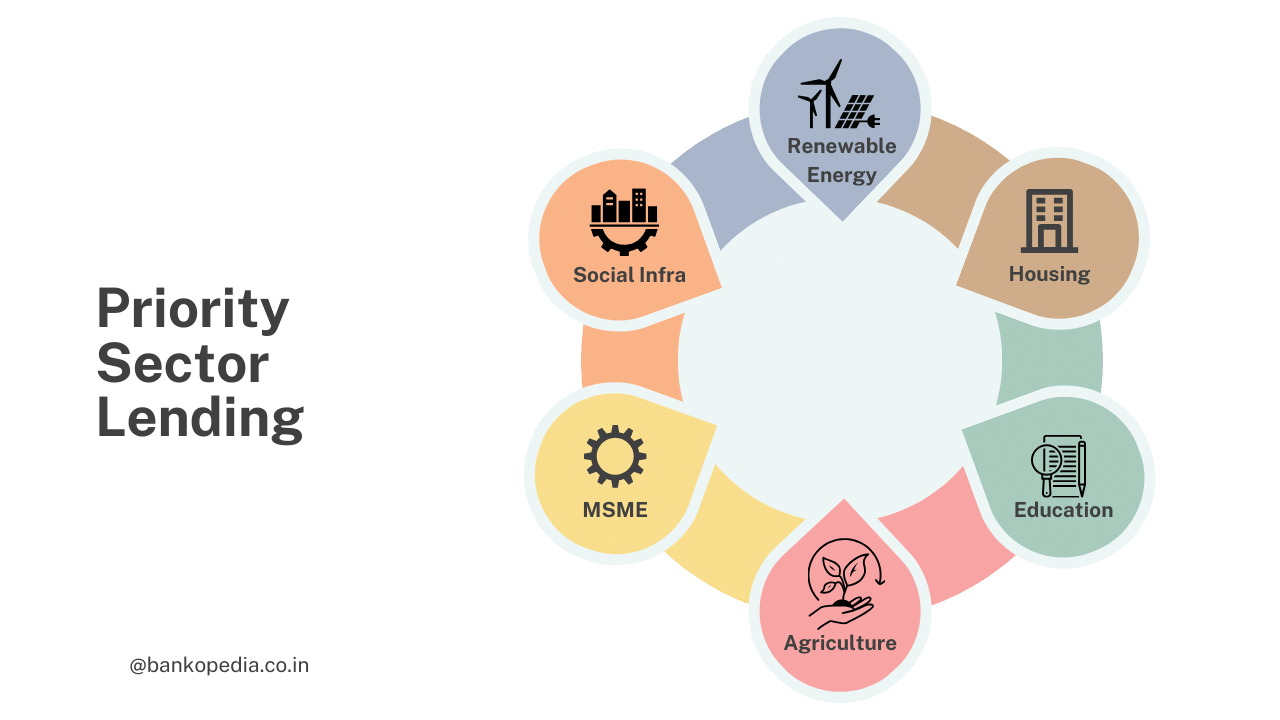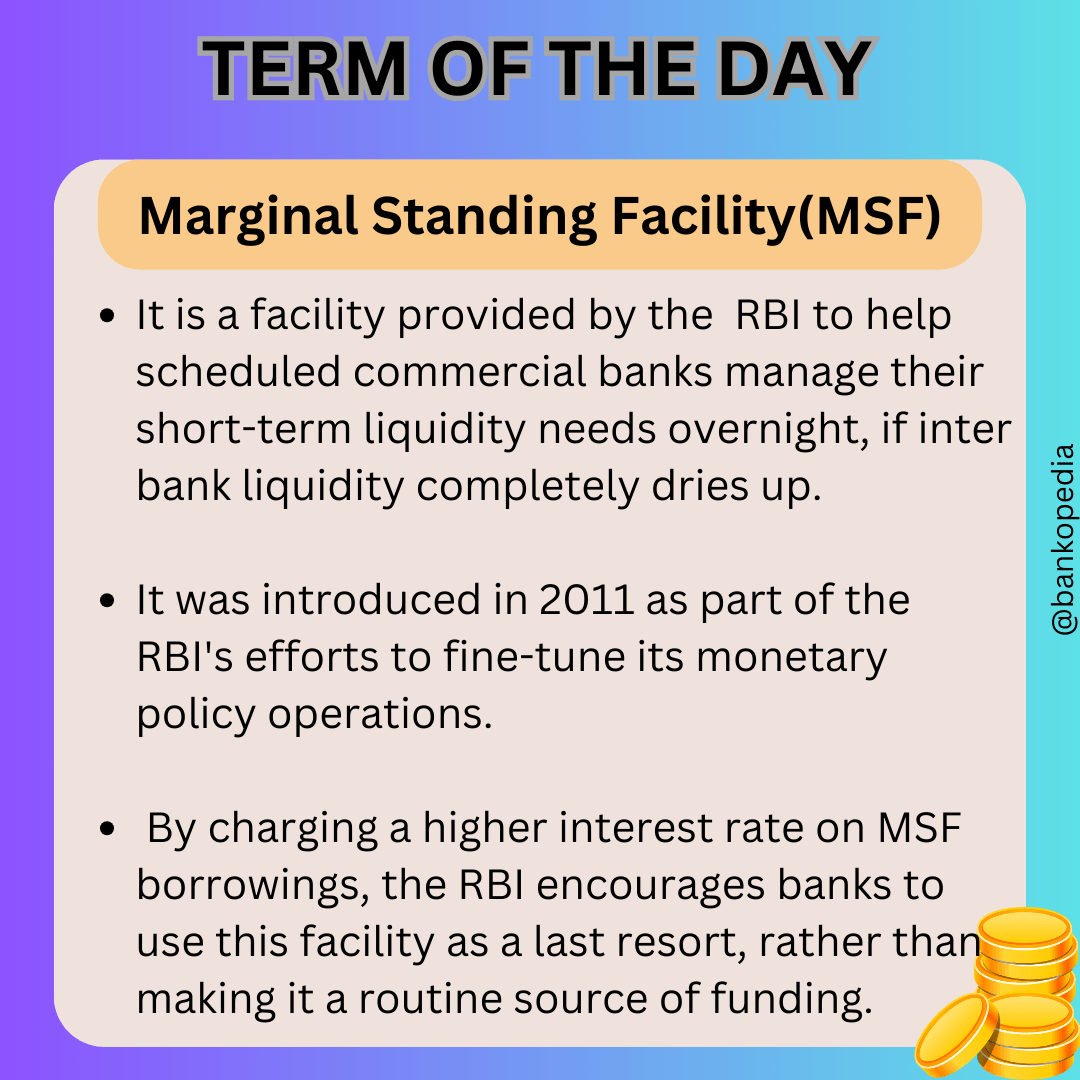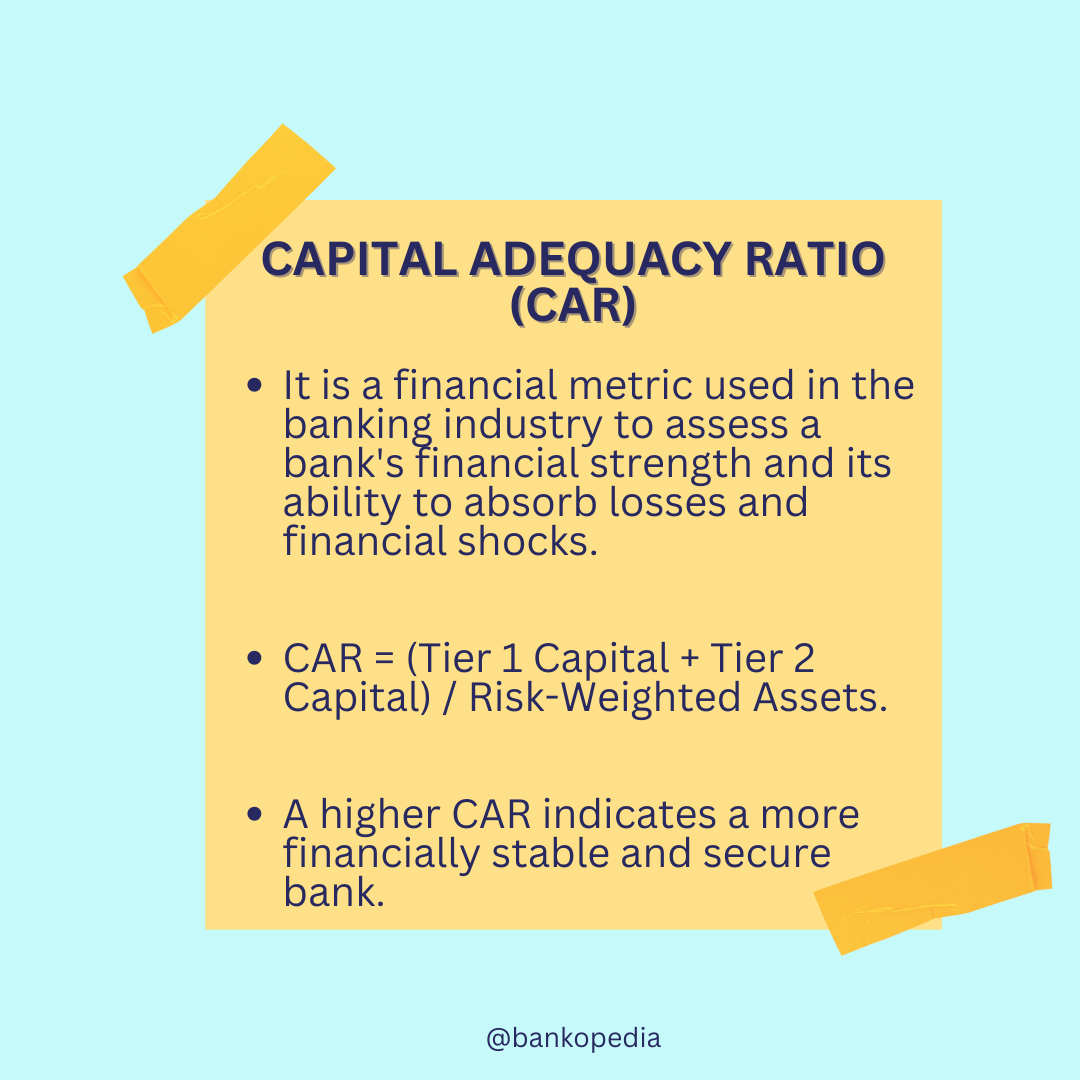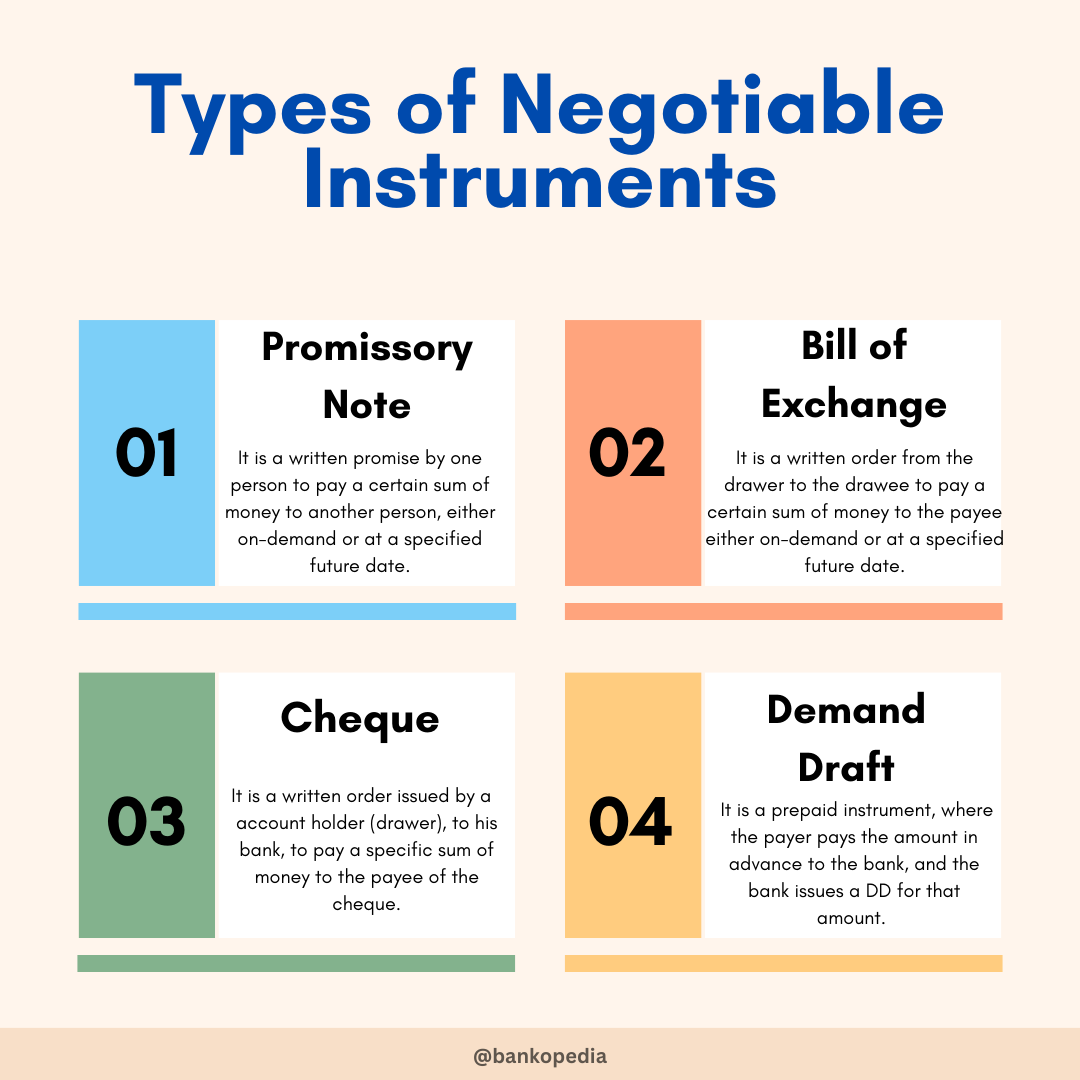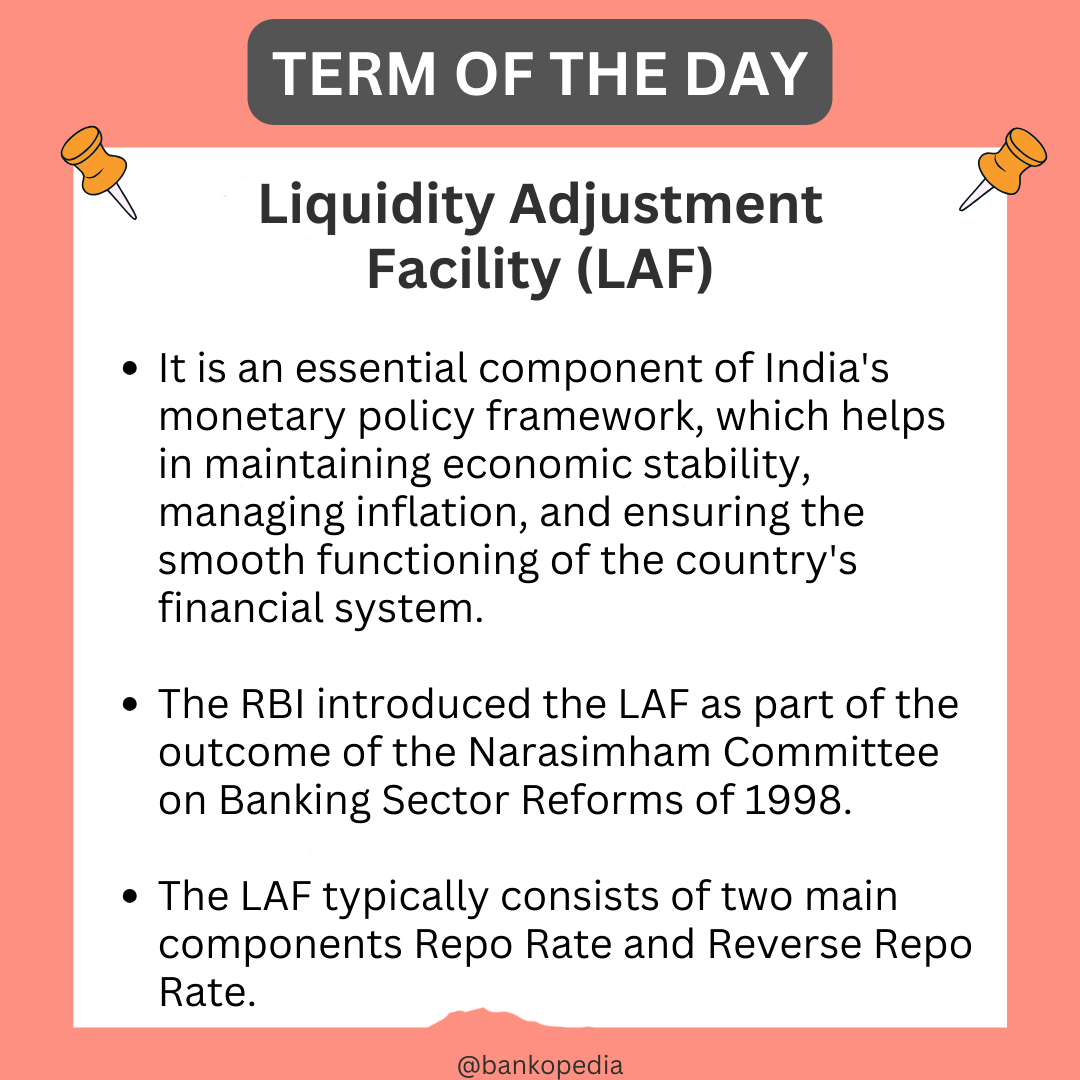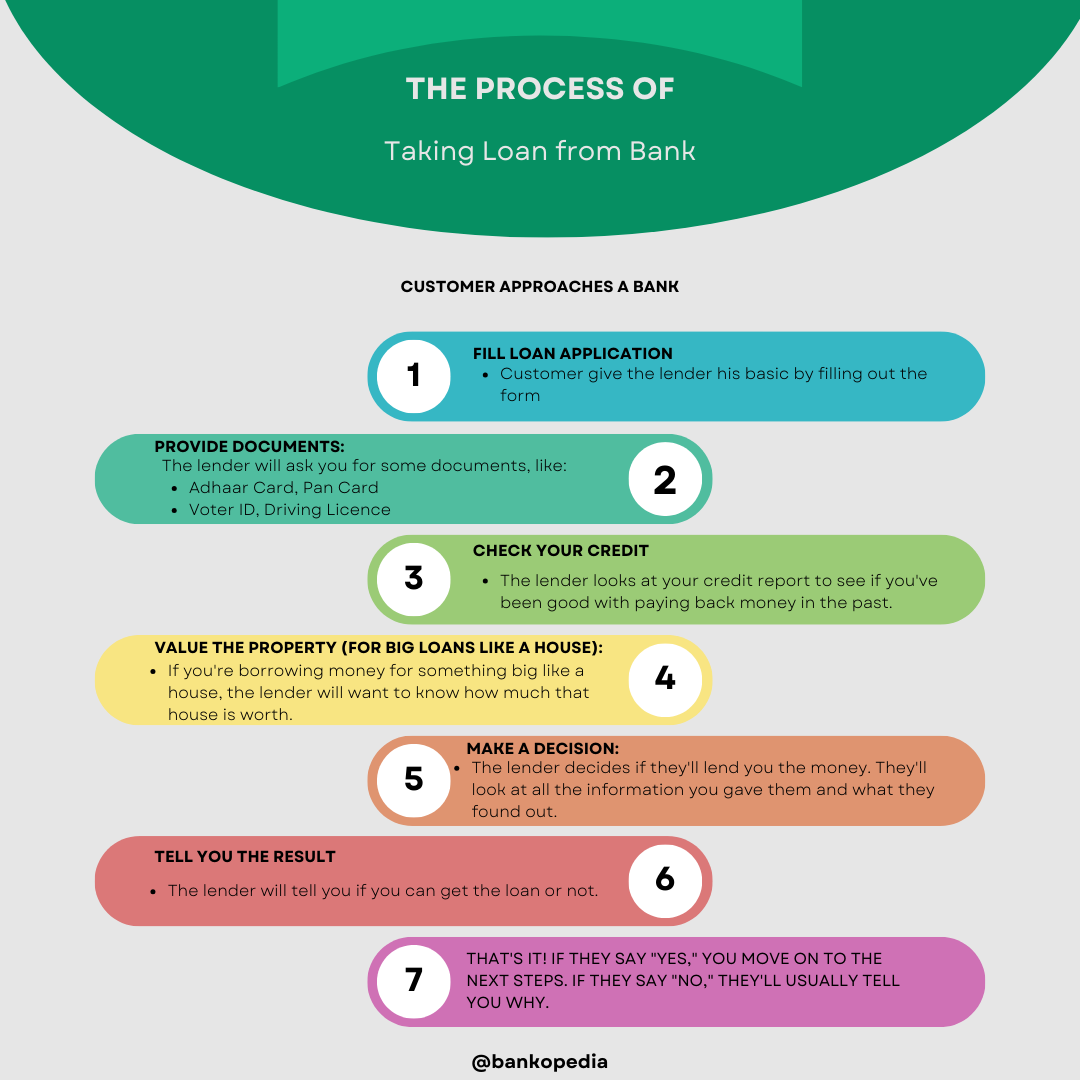Welcome to Daily Banking Digest, your premier source for the latest news and insights on March 19, 2024, focusing on banking, the economy, and finance. Our platform offers a comprehensive overview of the day’s most critical financial stories, market trends, and economic developments. Whether you’re a professional in the financial sector, an investor monitoring market movement, or someone interested in staying informed about the economic landscape, Daily Banking Digest provides reliable, up-to-date information.
Join our Telegram Channel for Daily PDF in your Inbox – Click Here
Table of Contents
Government to Support Private Sector in Securing Critical Mineral Resources Abroad
The Indian Mines Ministry aims to support Indian companies in acquiring or securing off-take agreements for critical minerals overseas, particularly those used in clean energy technologies. The Ministry encourages subsidiaries of Central Public Sector Enterprises (CPSEs) to expedite acquisition processes and facilitates discussions and business meetings at government levels. India has previously acquired lithium blocks in Argentina and is exploring opportunities in Australia, Chile, Africa, and Mongolia.

Key Points:
1. Focus on Critical Minerals: – The Ministry prioritizes critical minerals such as lithium, cobalt, and copper for clean energy applications.
2. Support for Indian Companies: – The Ministry assists Indian companies, including private entities and conglomerates, in acquiring critical minerals overseas.
3. Role of CPSEs: – Subsidiaries of CPSEs are encouraged to expedite acquisition processes.
4. India’s First Lithium Acquisition: – India acquired five lithium blocks in Argentina through Khanij India Bidesh Ltd (KABIL).
5. Facilitation of Discussions: – The Ministry facilitates discussions and business meetings for the acquisition of critical mineral blocks.
6. Private Sector Involvement: – The Ministry encourages private companies to acquire critical minerals overseas.
7. Exploration in Australia: – Due diligence activities are underway in two lithium blocks in Australia.
8. Tapping into Africa: – Industry associations are exploring investment opportunities in African nations, including Congo and Zimbabwe.
9. Mongolia Exploration: – Mongolia is being explored for copper resources.
Mauritius’ Tax Haven Status Revoked, Declares Minister Bholah
Mauritius has eliminated its tax haven status and is now a gateway for Indian investors to access African markets. The country has implemented stringent regulations to ensure transparency and prevent shell companies. Mauritius has trade agreements with 34 African countries, providing safety for investments.

Key Points:
Tax Haven Status: – Mauritius is no longer a tax haven. – Stringent regulations have been implemented to eliminate this image.
Gateway to Africa: – Mauritius offers access to 34 African countries through trade agreements. – This ensures safety of funds invested in Africa.
Shell Companies: – Mauritius does not have any shell companies. – Transparency and trust are essential for the country’s financial stability.
International Recognition: – Mauritius has earned good ratings from international bodies like the IMF, World Bank, and OECD. – The country meets all requirements for Anti Money Laundering and Counter for Terrorism Financing Measures.
OECD Compliance: – Mauritius adheres to OECD recommendations and guidelines. – The OECD has not identified any contraventions of international regulations.
Fiscal Regime: – Mauritius does not meet any of the four conditions defining a tax haven according to the OECD.
Mauritius International Financial Centre (MIFC): – The MIFC is a globally recognized hub for financial services. – It serves as a base for international banks, legal firms, and investment funds.
Investment Safety: – Routing investments through Mauritius ensures safety due to trade agreements with African countries. – Some Indian companies have lost heavily by investing directly in Africa.
Morgan Stanley: India’s Growth Unlikely to Reach China’s Previous Levels of 8-10%
Morgan Stanley’s chief Asia economist predicts that India’s long-term economic growth will likely range between 6.5% and 7%, lower than China’s historical 8%-10% growth rates. While India has potential, it faces challenges such as infrastructure deficiencies and a low-skilled workforce. Despite these constraints, Morgan Stanley remains optimistic about India’s prospects, citing rising investment and capital flows. However, the bank believes that India is unlikely to replace China as a global manufacturing hub due to China’s advanced capabilities and dominance in emerging industries.

Key Points:
Economic Growth: – India’s long-term economic growth is projected at 6.5%-7%, lower than China’s historical 8%-10% growth rates.
Challenges to Growth: – India faces challenges in infrastructure and skilled workforce development.
Morgan Stanley’s Outlook: – Morgan Stanley remains optimistic about India’s prospects, citing rising investment and capital flows.
Manufacturing Hub: – India is unlikely to replace China as a global manufacturing hub due to China’s advanced capabilities and dominance in emerging industries.
Inflation and Interest Rates: – Strong economic growth may influence the timing of the Reserve Bank of India’s interest rate cuts. – RBI Governor Shaktikanta Das has indicated that rate cuts will not be considered until inflation settles around the 4% target.
India’s Crude Oil Imports Decline in February After January Surge
India’s crude oil imports declined by 6.6% year-over-year and 16% month-over-month in February 2024, reaching 18 million tonnes. Despite the decline, imports were the third highest in the last ten years. Russia remained the largest supplier, accounting for 38% of imports, but discounts on Russian crude have narrowed. The impact of US sanctions and other obstacles on Russian imports remains uncertain, potentially benefiting traditional suppliers like Iraq and Saudi Arabia.
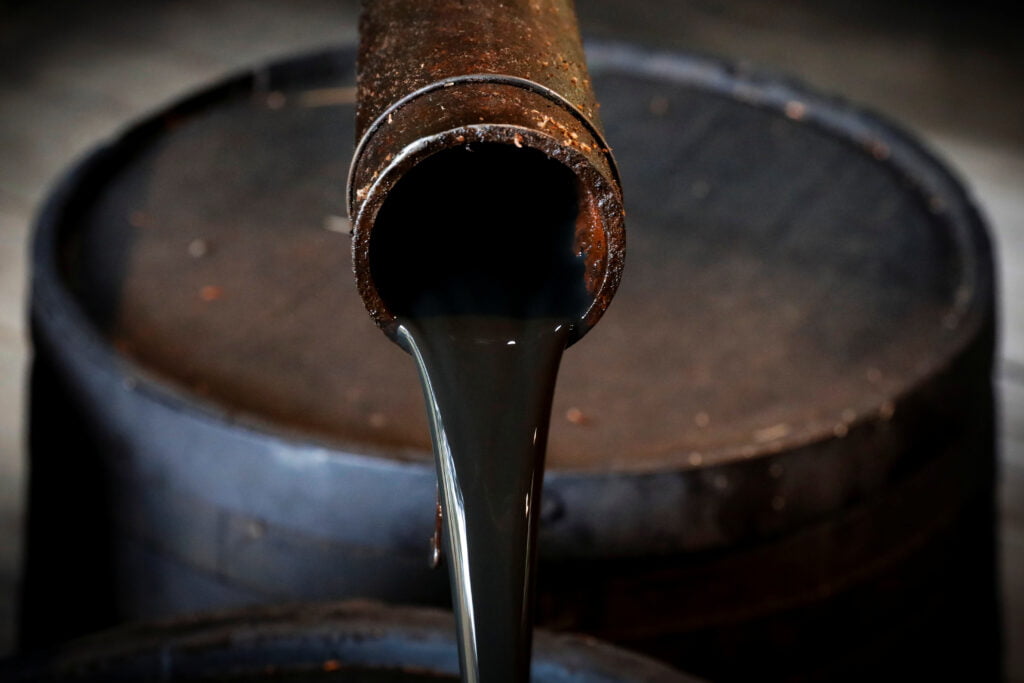
Key Points
Imports – Declined by 6.6% Y-o-Y and 16% M-o-M to 18 million tonnes in February 2024. – Lowest since September 2023. – Third highest in the last ten years.
Sokol Shipments – Resumed in February, contributing to higher imports. – India imported 97,229 barrels per day of Sokol.
Russian Imports – Russia remained the largest supplier, accounting for 38% of imports. – Discounts on Russian crude have narrowed. – US sanctions and other obstacles could impact future imports.
Crude Oil Prices – Brent Crude averaged $83.93 per barrel in February 2024. – Indian basket’s price averaged $81.62 per barrel.
Outlook – Impact of US sanctions on Russian imports remains uncertain. – Traditional suppliers like Iraq and Saudi Arabia could benefit from obstacles to Russian imports.
Sugar Production Declines Slightly to 28.08 Million Tonnes in 2023-24 Season (Until March 15), Reports ISMA
Sugar production in India reached 280.79 lakh tonnes (lt) as of March 15, 2024, slightly lower than the 282.60 lt produced during the same period last year. Despite the decline, the number of operating sugar factories increased from 325 to 371. Uttar Pradesh remains the top sugar producer, followed by Maharashtra and Karnataka. The industry estimates a gross sugar production of 340 lt for the current season, with a diversion of 17 lt towards ethanol manufacturing.
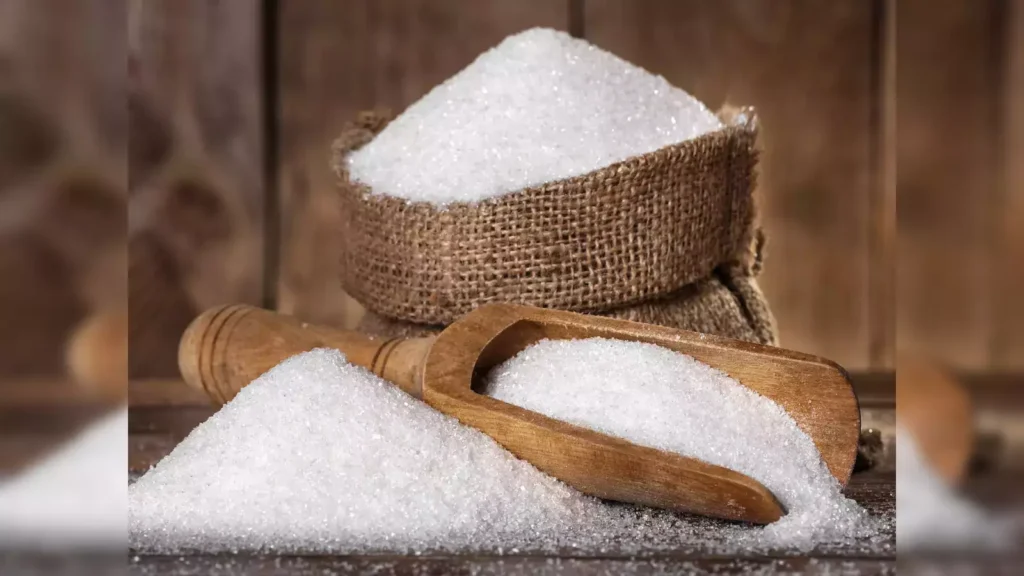
Key Points:
Sugar Production: – Sugar production reached 280.79 lt as of March 15, 2024. – Production was slightly lower than the 282.60 lt produced during the same period last year.
Number of Operating Factories: – The number of operating sugar factories increased from 325 to 371 as of March 15, 2024.
Top Sugar Producers: – Uttar Pradesh remains the top sugar producer, followed by Maharashtra and Karnataka.
Ethanol Diversion: – 17 lt of sugar has been diverted towards ethanol manufacturing via sugarcane juice/B-heavy molasses.
Gross Sugar Production: – The gross sugar production (without diversion for ethanol) is estimated at 340 lt for the current season.
PSU Bank Stocks Face Sebi Deadline for Rs 7 Lakh Crore Rally
PSU bank stocks have experienced a significant rally, with seven multibaggers in the past year. However, the Sebi deadline for meeting the 25% minimum public shareholding (MPS) rule is approaching in August, which could impact the rally. The low free float factor has contributed to the bull run, but the government must now reduce its stake in five remaining multibaggers to comply with the rule.
Key Points:
1. Sebi Deadline for MPS Rule: – Sebi deadline for listed companies to meet the 25% MPS rule is August 2024. – PSU banks have been given an extension to meet the norms.
2. Low Free Float Factor: – High promoter holding (government holding in PSU banks) leads to an artificial mismatch between demand and supply. – Low free float can contribute to higher share prices.
3. Government Stake Reduction: – Government must reduce its stake in five remaining multibaggers (Bank Of Maharashtra, Central Bank Of India, UCO Bank, Indian Overseas Bank, Punjab & Sind Bank) to comply with the MPS rule.
4. Potential Impact on Share Prices: – Increased free float could create a supply overhang and impact share prices. – However, it could also allow more investors to recognize the strong fundamentals of PSU banks.
5. Beyond the Float Factor: – Future trajectory of stock prices depends on valuations and growth outlook. – PSU banks have shown strong growth and improvement in asset quality. – Analysts believe PSU bank valuations are still reasonable and offer value opportunities.
Gold and Bitcoin: Useless Asset Classes for Average Investors
The recent surge in Bitcoin and gold prices is driven by their function as safe havens against the devaluation of the US dollar. Despite their fundamental differences, both assets are seen as stores of value in times of economic uncertainty. However, investors should approach these volatile assets with caution and focus on domestic investments with intrinsic value for long-term growth.
Key Points:
1. Bitcoin and Gold as Safe Havens: – Both Bitcoin and gold are functioning as currencies that provide shelter from the devaluation of the US dollar. – The deluge of US dollars has led investors to seek alternative assets to protect their wealth.
2. Fundamental Differences: – Gold is a tangible asset with a long history as a store of value. – Bitcoin is a digital construct with a relatively short history and limited understanding.
3. Convergence in Function: – Despite their differences, both gold and Bitcoin are serving as safe havens in the current economic climate. – This convergence reveals a broader trend of asset diversification in times of uncertainty.
4. Volatility and Risk: – Bitcoin and gold are highly volatile assets, making them unsuitable for average investors seeking stability. – Many have lost money when the values of these assets have plummeted without warning.
5. Prudent Investment Strategy: – Investors should approach Bitcoin and gold with caution and focus on assets with intrinsic value that generate income over time. – Diversification, research, and a focus on domestic investments are key to a sound investment strategy.
Supreme Court Dismisses Adani Firm’s Claim for Late Payment Surcharge from Rajasthan Electricity Board
The Supreme Court dismissed Adani Power Rajasthan Ltd’s plea to recover over Rs 1,300 crore as late payment surcharge from the Jaipur Vidyut Vitran Nigam Limited. The court ruled that filing a miscellaneous application was not the proper legal recourse and imposed a cost of Rs 50,000 on Adani Power Rajasthan Ltd.
Key Points:
Maintainability of Miscellaneous Application: – Filing a miscellaneous application is not the proper legal recourse for seeking late payment surcharge.
Inherent Power of the Court: – The inherent power of the court cannot be invoked to maintain the present application.
Review of Main Judgment: – Adani Power Rajasthan Ltd has not applied for a review of the main judgment.
Contempt Action: – Adani Power Rajasthan Ltd failed to establish willful disobedience of the main judgment and order in the contempt action.
Hitchhiking on Judgment: – Adani Power Rajasthan Ltd cannot continue to rely on the inherent power or jurisdiction of the court to seek relief.
Costs Imposed: – The Supreme Court imposed a cost of Rs 50,000 on Adani Power Rajasthan Ltd for filing the miscellaneous application.
Background of the Case: – Adani Power Rajasthan Ltd sought a direction to the state firm to make a payment of Rs 1,376.35 crore towards late payment surcharge. – The claim was based on a term of the Power Purchase Agreement entered into with the state discom in 2010. – The Adani firm argued that it was compelled to rely on imported coal due to the non-availability of sufficient domestic coal, resulting in higher costs. – The apex court had previously decided the matter and the firm filed an interim application on this issue.
Court’s Reasoning: – The court held that the provision pertaining to a suit does not apply to a miscellaneous application invoking inherent powers of the court. – The court has become functus-officio and does not retain jurisdiction to entertain an application after the appeal was disposed of. – A post-disposal application for modification and clarification of the order of disposal shall lie only in rare cases, where the order passed by the court is executory in nature and the directions of the court may become impossible to be implemented because of subsequent events or developments.
IL&FS Approaches NCLAT to Prevent Wilful Defaulter Designation for Group Companies
IL&FS has filed an urgent application with NCLAT to restrain 11 public sector banks from declaring its group companies as wilful defaulters. IL&FS alleges that the banks are violating previous NCLAT orders and harassing its directors. The banks are reportedly issuing show cause notices, threatening criminal proceedings, and seeking to declare IL&FS companies and their directors as wilful defaulters. IL&FS argues that these actions are an attempt to pressure the company into meeting debt demands without regard to the ongoing resolution process.
Key Points:
Banks’ Actions:
- Issuing show cause notices
- Calling for personal hearings before the Wilful Defaulter Identification Committee
- Threatening initiation of criminal proceedings
- Seeking to declare IL&FS companies and their directors as wilful defaulters
- Getting Look Out Circulars issued
IL&FS’s Allegations:
- Blatant violation and disregard of previous NCLAT orders
- Procedural actions taken under the garb of RBI guidelines
- Harassment of IL&FS directors
IL&FS’s Requests to NCLAT:
- Restraining banks from pursuing proceedings against IL&FS companies and their directors
- Directing RBI to restrain banks from taking coercive actions
- Directing banks not to take any coercive actions during the pendency of the hearing
Background:
- IL&FS is a debt-ridden company with a debt burden of Rs 94,000 crore.
- NCLAT superseded the existing board of IL&FS in October 2018 and appointed a new board to resolve the crisis.
- NCLAT granted protection to IL&FS companies against recovery of dues and immunity to newly appointed directors.
- IL&FS has categorized its group companies into green, amber, and red based on their financial positions.
DBS Aspires to Become a Banking Partner for Startups
DBS Bank India has allocated $250 million to support new-age startups, recognizing their improved operating metrics and focus on profitability. The bank aims to provide a range of banking solutions, including escrows, foreign exchange, and digital solutions, to startups in various sectors, such as healthcare, technology, AI, transportation, and waste management.
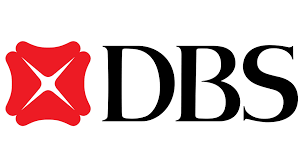
Key Points:
1. Funding Allocation: – DBS Bank India has earmarked $250 million for lending to startups.
2. Target Sectors: – Healthcare – Technology – AI in financial services – Transportation – Logistics – Retail – Waste management – Supply chain logistics
3. Banking Solutions: – Escrows – Foreign exchange – Cash management – Digital solutions – Trade financing – Structuring – Advising – Sustainability – Regulatory reporting
4. Evaluation Process: – DBS Bank will use a comprehensive evaluation process to provide specific banking solutions to startups.
5. Risk Management: – The bank will not play the role of an equity provider. – It will adopt a less conventional approach to credit assessment for startups.
SBI Ordered by Supreme Court to Disclose Electoral Bond Details by March 21
The Supreme Court has ordered the State Bank of India (SBI) to disclose all details related to the electoral bonds scheme, including unique bond numbers, by March 21. The court has criticized the SBI for being “selective” in its disclosure and has directed the Election Commission to upload the received details on its website.

Key Points:
Disclosure of Electoral Bond Details: – SBI ordered to disclose all details of electoral bonds in its possession, including unique bond numbers. – Disclosure to be made by March 21.
Election Commission’s Role: – Election Commission to upload electoral bond details received from SBI on its website.
Landmark Verdict: – Supreme Court had previously declared the electoral bonds scheme “unconstitutional.” – Court had ordered disclosure of donor and recipient details by March 13.
SBI’s Incomplete Disclosure: – SBI had sought an extension of time to disclose electoral bond details. – Court had admonished SBI for furnishing incomplete information.
SBI’s Submission: – SBI has no reservation in disclosing all electoral bond details.
Industry Bodies’ Plea: – Court refused to hear unlisted pleas from industry bodies seeking an urgent hearing on disclosure of bond details.
NGO’s Claim: – Major political parties have not provided donor details.
Solicitor General’s Statement: – Public-spirited citizens are assisting in disclosure efforts. – Sponsored NGOs are “fudging figures.”
Supreme Court’s Refusal of Review: – Court refused to take note of a letter seeking a suo motu review of the judgment on disclosure of electoral bond details.
Solicitor General’s Dissociation: – Solicitor General disassociated himself from the letter seeking a review.
Social Media Posts: – Court expressed concern about social media posts intended to cause embarrassment.
Court’s Role: – Court is concerned with enforcing its directions and is governed by the rule of law. – Court’s institutional role is to play in a polity governed by the Constitution and the rule of law.
Foreign Direct Investment in Insurance Sector Reaches Rs 54,000 Crore Over Nine Years
The Indian insurance sector has witnessed significant foreign direct investment (FDI) inflows of Rs 54,000 crore over the past nine years, driven by the government’s liberalization of overseas capital flow norms. This has led to an increase in the number of insurance players, insurance penetration, and insurance density.
Key Points:
FDI Inflows: – Rs 54,000 crore of FDI received in insurance companies between December 2014 and January 2024.
Permissible FDI Limit: – Increased from 26% in 2014 to 49% in 2015 and 74% in 2021. – 100% FDI permissible for insurance intermediaries since 2019.
Growth in Insurance Sector: – Number of insurance players increased from 53 to 70 as of January 2024. – Insurance penetration increased from 3.9% in 2013-14 to 4% in 2022-23. – Insurance density rose from USD 52 in 2013-14 to USD 92 in 2022-23.
Asset Under Management and Insurance Premium: – Asset Under Management nearly tripled to Rs 60.04 lakh crore. – Total insurance premium more than doubled to Rs 10.4 lakh crore.
Foreign Investment in Insurance Sector: – Many foreign companies have invested in the insurance sector. – Zurich Insurance-Kotak General Insurance deal could be a major FDI flow.
Outward Foreign Direct Investment from India Surges to $3.47 Billion in February
India’s outward foreign direct investment (FDI) commitments surged to $3.47 billion in February 2024, a significant increase from $2.82 billion in February 2023. This growth was primarily driven by a surge in guarantees, while equity and debt commitments declined.
Key Points:
Equity Commitments: – Declined to $502.14 million in February 2024 from $776.79 million in February 2023. – Lower than the $764.29 million recorded in January 2024.
Debt Commitments: – Decreased to $251.08 million in February 2024 from $334.75 million in February 2023. – Lower than $306.59 million in January 2024.
Guarantees: – Swelled to $2.71 billion in February 2024 from $1.71 billion in February 2023. – Substantially higher compared to $1.11 billion in January 2024.
India and Peru to Discuss Free Trade Agreement Framework
India and Peru are working to finalize the text of a proposed free-trade agreement (FTA), aiming to share the document and a list of services and goods before the seventh round of negotiations in April. The agreement aims to enhance trade opportunities and strengthen economic ties between the two nations.
Key Points:
Negotiations and Timeline: – Negotiations for the India-Peru FTA began in 2017, with the fifth round concluding in 2019. – Talks resumed in February 2024, with the sixth round completed in Lima. – The seventh round is scheduled for April 8 in New Delhi.
Trade Significance: – Peru is India’s 43rd largest trading partner and third-largest export destination in the Latin America and Caribbean region. – India seeks to diversify its exports and expand trade with LAC nations.
Challenges: – Tariff concessions on gold, which accounts for 80% of India’s imports from Peru, pose a challenge for India. – Gold imports from the UAE doubled after tariff concessions under the India-UAE FTA.
Other Trade Agreements: – India has signed trade deals with Chile, Mercosur nations, and the European Free Trade Association. – Negotiations are ongoing with Oman, the United Kingdom, and the European Union.

